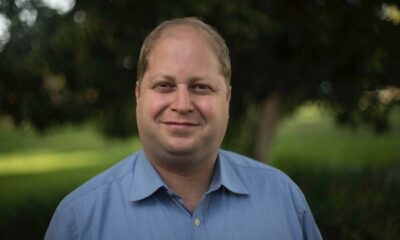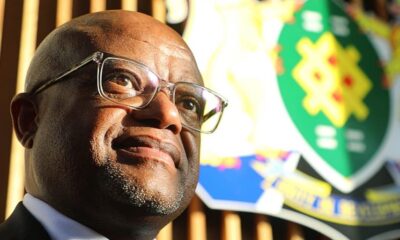
Featured Item

Joburg mayor pledges to make city work
Dr Mpho Phalatse, the executive mayor of Johannesburg, has called on the private sector to help sort out the city’s economy and job creation, while she’ll make sure to provide a working city for them.
“What’s our role as a city? The private sector has said to us, ‘Don’t worry about growing the economy. Don’t worry about creating jobs. It’s our job to do that. You give us a city that works,’” she told a packed audience at Limmud Johannesburg.
Since being elected mayor in November 2021, Phalatse has had to address the fact that Johannesburg is the most unequal city in the world according to the Gini coefficient. “Across the M1, you see Alexandra, one of the poorest urban spaces. On the other side, you see the richest square mile in Africa, all in the same city of Johannesburg,” said Phalatse. “How do we start to address that? We facilitate the social migration of people who are underprivileged.”
In 2018, Phalatse found herself suspended from her role as the MMC (member of the mayoral committee) for health and social development by then Johannesburg Mayor Herman Mashaba after she publicly declared her support for Israel.
She recalls that back then, “the Israeli ambassador to South Africa asked me to lunch, and I got to know the nice kosher restaurants in Norwood”.
But since being mayor, she has had a massive job on her hands getting Johannesburg back on an honest and lucrative footing. She asked if the audience had read in the media lately about Group Forensics and Investigation Services coming under attack.
“It’s the corruption watchdog of the city. That’s why it’s under attack,” said Phalatse. “Since its inception in 2016, it has dealt with 8 000 cases of corruption to the value of R45 billion. Of that, we have been able to help the city recover R9 billion. We hope to recover as much as possible.”
She said she had been focusing on getting the basics right – “stabilising energy supplies, having a clean water supply, fixing roads, keeping the city clean, making sure there’s affordable and reliable transport, and so forth”.
The city had hosted a two-day energy indaba to look at how to stabilise electricity in Johannesburg, Phalatse said. “We hate loadshedding. We’ve worked out that we need to generate an additional 500MW of power to offset loadshedding in Johannesburg. We’ve started asking the private sector to tell us how it can help us do that. City Power is now finalising the process.”
Phalatse said she planned to combat cable theft and attacks on infrastructure. “We’ve started applying for critical infrastructure to be declared critical infrastructure in terms of the Infrastructure Protection Act. That will help us access resources to increase its protection.”
She said she would soon be bringing out her Golden Journey newsletter to keep the residents of Johannesburg up to date with the latest developments in the city.
A medical doctor by profession, Phalatse has gone from private practice to public service.
“I’m a very simple girl from Mabopane township north of Tshwane, raised by two educator parents,” she said. A big turning point in her life was when she found herself in a rural town in North West Province, rendering disability services on behalf of the South African Social Security Agency.
“Many of the people who came to me for this benefit couldn’t afford food. I realised what I really wanted to learn was how to get the government to work for the people, so I started researching and became attracted to the Master of Medicine programme at Wits University. In 2011, I moved to Johannesburg to study for four years. At the end of that, I ended up in Alexandra.
“One Sunday morning, five young men were wheeled in, all of them with multiple gunshot wounds after somebody had walked in and started shooting randomly. We lost two in that casualty. They died in our hands. I couldn’t stop crying for a week. I realised I had to do something.
“While I was getting ready to establish my business, I started complaining, writing to everybody who I knew had some influence.”
The then Democratic Alliance [DA] deputy shadow minister for health responded, “Have you ever thought of getting involved in public service?” she was asked.
Phalatse applied to be a PR [proportional representation] counsellor based in Alexandra to help the people drive their issues, while continuing with her work plans. “Elections came. We ended up in a coalition government. Without warning, the DA mayor announced me as the MMC for health and social development [in 2016]. It was a full-time job, so from that day onwards, I became a full-time politician.”
Nevertheless, she eventually put up her hand to be the Johannesburg mayoral candidate for the DA. “We got only 26% of the vote. We needed 50% plus one, but I came out as the mayor. It can only be by the grace of G-d.”










